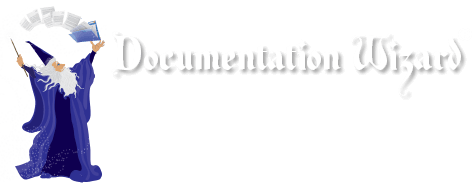LIVE WORKSHOP NAME
Misery or Mastery®
Documenting Medical Necessity for Psychotherapists
The workshop comes with:
- the Powerpoint slide deck to make comments and use as reference while writing your notes.
- practice treatment plan and practice session note forms to be used during the workshop.
- access to Beth’s Facebook group, Misery or Mastery: Documenting Medical Necessity for Psychotherapists where you can give and get support, including directly from Beth.
6 Continuing Education Credits may be possible for social workers, psychologists, LMHCs, LMFTs in most states. Learn more about CE Accreditation
The Live Documentation Wizard Workshop is a day long (approximately 6 hours).
If you're interested in having Beth come to your location for a live workshop ...
Next Live Misery or Mastery Documenting for Psychotherapists Trainings
Friday, June 27, 2025
Michigan Child & Adolescent Health Center
LIVE Webinar Training
Private
Friday, April 11, 2025
LIVE Webinar
Friday, April 18, 2025
Full Force Foundation
San Antonio, TX
Private
Learn More
Past Live Workshops:
Wednesday, September 18, 2024
Lakeside Counseling
Live Webinar Training
Friday, May 3, 2024
Documentation Wizard LIVE Webinar
Live training
October 27, 2023
CE Learning Systems
Live Training
October 20, 2023
Therapy Training
Boston
In-person & Virtual.
September 13, 2023
Southern Indian Health Council
California
Virtual. Private.
August 2, 2023
Child and Adolescent Health Center Program
Michigan
Virtual. Private.
May 12, 2023
Documentation Wizard LIVE Webinar
If you are interested in hiring Beth for your group or agency, please go to HIRE BETH for more information.
Learn to...
INSTRUCTOR

Beth Rontal, MSW, LICSW, is a nationally recognized and engaging speaker on mental health documentation for private practice clinicians and those in agency settings. She mastered her teaching skills with thousands of hours supervising and training clinicians at an agency for 11 years. Her Misery & Mastery TM trainings and documentation forms have been used world-wide. Beth works with both emerging and seasoned mental health professionals, agencies, clinics, group practices, and hospitals. Beth writes blogs on clinical documentation, co-chairs the NASW Private Practice Shared Interest Group, and has a private practice in Brookline, MA specializing in working with people who struggle with emotional eating.
WORKSHOP OBJECTIVES
- Apply the clinical documentation process for writing successful session notes, treatment plans, case consults, discharge and intake summaries.
- Demonstrate how to translate your work into the behavioral language required by insurance companies.
- Apply the “golden thread” to justify medical necessity.
- Identify Red Flags that could trigger an audit and result in an insurance recoupment.
WORKSHOP SCHEDULE
Introduction
- The Topic Clinicians Love to Hate
- You’re not crazy, or stupid. You’re just not trained.
- Why document?
- Writing for different “masters”
- Documentation through the lens of medical necessity
- “The Golden Thread” and how it relates to medical necessity
- Documentation as a contribution to good clinical work
- Documentation as protection of income and agent of professional integrity
- Anxiety-reducing answers to common questions.
- Avoiding documentation fatigue
Part 1: How to Write a Treatment Plan
- Definition of a treatment plan
- Everything that’s needed in a treatment plan and why
- Writing a treatment plan that justifies medical necessity
- Implementing the Golden Thread with case examples
- The Treatment Plan Formula
- Operationalizing the presenting problem
- How to describe the diagnostic criteria using behavioral language
- Questions to ask
- Creating a clear connection between the problem, goals, objectives, and interventions
- Protecting client and therapist with a risk assessment
- Evaluating and documenting progress
- Frequency of treatment plans
- How to avoid making yourself crazy writing your treatment plans
Practice writing a treatment plan with review
Part 2: How to Write a Session Note
- Definition of a session note and how it relates to the treatment plan
- Everything that’s needed in a session note for insurance companies and the law, and why
- Writing a session note that justifies medical necessity using behavioral language and the “golden thread” with case examples
- Maintaining client confidentiality
- Justifying multiple sessions
- How to document changes in treatment plan in the session note
Practice writing a session note and review
Part 3: How to Write Case/Collateral Contact Note, Discharge Summary, & Diagnostic Summary
- How to Write a Case/Collateral Contact Note
- The difference between a Case and Collateral Contact Note
- Everything that’s needed in a Case and Collateral Contact Note and why
- Relationship to the treatment plan
- How to write a case/collateral Contact Note that maintains the “golden thread” and justifies medical necessity with case examples
- Clinical and legal Importance of Case/Collateral Contact Note
- How to Write a Discharge Summary
- Definition of a discharge summary and how it relates to the treatment plan
- Everything that’s needed in a discharge summary and why
- How the discharge summary completes the Golden Thread
- Legal considerations of a discharge summary
- To send a termination letter or not
- How to Write an Intake or Diagnostic Summary
- Establishing the connection between the diagnosis and treatment
- How to write a diagnostic summary that lays the ground for medical necessity and initiates the Golden Thread
- What’s needed in a diagnostic summary and why
- Legal requirements of a diagnostic summary
- When to write a diagnostic summary
Part 4: Red Flags, Wrap-up
- What triggers an audit
- How to fail an audit
- Examples of documentation mistakes that can be seen as insurance fraud
- Are paper notes OK? To EHR or not?
- Basic Do’s and Don’ts
- What’s next
RESEARCH
There are a variety of reputable websites regarding best practice standards for documenting medical necessity. A few select sites include: Association for Behavioral Health Care; Massachusetts Standardized Documentation Project http://bit.ly/2NdzDET; Medical Documentation for Behavioral Health Practitioners 2015 at https://go.cms.gov/2EkA9OV; and a specific social work resource book Sidell, Nancy L. Social Work Documentation; a Guide to Strengthening Your Case Recording, NASW Press, Washington, DC, 2011. & revised edition, 2015 http://bit.ly/2Eh5yBt
TARGET AUDIENCE
social workers, psychologists, marriage and facility therapists, mental health counselors, creative arts therapists, addictions professionals, and other interested human service staff.
CONTENT LEVEL
Beginning, Intermediate, Advanced
CONTINUING EDUCATION
Continuing Education Credits will be the responsibility of the organization sponsoring the Documentation Wizard Workshop. Continuing Education Credits may be possible for psychologists, social workers, marriage and family therapists, mental health counselors.
Beth is happy to provide any information needed for the sponsoring organization to obtain the credits.
